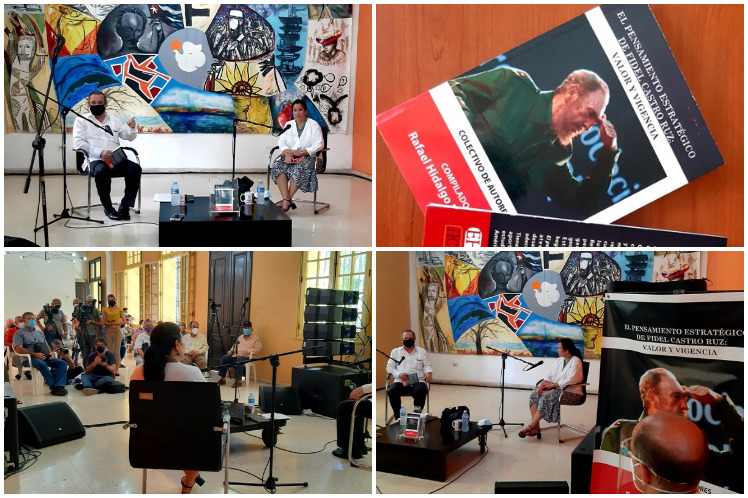During the presentation of the volume at Casa del Alba Cultural in Havana, researchers assured the text includes political, Marti and Marxist-Leninist ideas; as well as, the dialectical relationship of past, present and future in the decision-making of the statesman.
The president of the Institute of History of Cuba, Yoel Cordoví, exclusively assured Prensa Latina that the document summarizes many facets, views and lines of thought of the Commander and is an approach from economics, philosophy, pedagogy, history and sociology. ‘Knowing Fidel’s work is not repeating or memorizing his sentences, it is understanding logic, how he describes his reality, understands it and transforms it from the characteristics of a colonial country first, neocolonial later, and only 90 miles from a power belligerant and hostile ‘, he assured.
Cordoví recognized how this selection encourages reading and reflection and shows a leader who seeks solutions to problems for immediate and concrete questions, and also the visionary who notices the circumstantial element, the strategy, scenario and future projection.
The work brings together a group of 14 authors, scholars and professors from various specialties such as Áurea Verónica Rodríguez, Rafael Hidalgo Fernández, Pedro Pablo Rodríguez, Osvaldo Martínez Martínez, José Luis Rodríguez García, Ricardo Alarcón de Quesada and René González Barrios.
The volume, dedicated to Commander Manuel Piñeiro Losada and José M. Miyar Barruecos (Chomy), addresses, among other topics, international economic relations, socialism as a condition for development, the struggle for democracy and the historical roots of a culture. solidarity.
ef/msm/dgh









